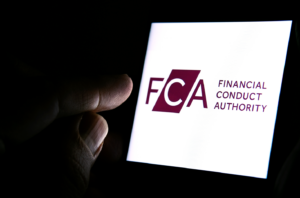The New Consumer Duty for Firms
23rd May 2023


The Financial Conduct Authority (FCA), the regulatory body overseeing financial markets in the UK, has introduced a new Consumer Duty, which aims to ensure that firms prioritise the interests of their customers.
This revolutionary approach places an increased emphasis on transparency, accountability, and fair treatment of consumers. Starting from July 31st, firms are expected to comply with these new regulations, making it crucial for them to invest in training to understand and implement these changes effectively. Additionally, the FCA’s focus on combating greenwashing and promoting sustainability adds an extra layer of responsibility for firms, making training in these areas equally vital. This article delves into the significance of the new Consumer Duty and the reasons why investing in training is essential for firms in the UK.
The New Consumer Duty: Prioritising Consumer Interests
1.1 Background of the Consumer Duty
The Consumer Duty represents a paradigm shift in the regulatory landscape, demanding that firms place the interests of consumers at the heart of their operations. It builds upon existing regulations, such as the Treating Customers Fairly (TCF) initiative and elevates the standards for consumer protection.
1.2 Key Elements of the Consumer Duty
The new Consumer Duty encompasses three key elements that firms must adhere to:
- Duty of Care: Firms must act in the best interests of consumers, considering their needs, circumstances, and vulnerability, and take reasonable steps to prevent harm.
- Standard of Care: Firms are required to provide products and services that meet the needs of consumers and maintain the necessary standards of quality and suitability.
- Duty of Communications: Firms must communicate clearly, accurately, and in a way that consumers can understand, enabling them to make informed decisions.
Why Firms Should Invest in Training
2.1 Ensuring Compliance and Avoiding Penalties
With the introduction of the Consumer Duty, compliance has become imperative. Failure to meet the new obligations can result in severe penalties, including fines and reputational damage. Investing in training will help firms understand the intricacies of the Consumer Duty, allowing them to align their practices and processes accordingly and mitigate the risk of non-compliance.
2.2 Enhancing Customer Experience
By prioritising consumer interests and promoting fair treatment, firms can enhance their customer experience. Training employees on the Consumer Duty will enable them to recognise and address potential issues proactively, resulting in improved customer satisfaction, loyalty, and ultimately, business growth.
2.3 Promoting Ethical Conduct
The Consumer Duty encourages ethical conduct, aligning business practices with the values of fairness and transparency. Training programs can educate employees on ethical decision-making frameworks, empowering them to make principled choices and maintain high standards of conduct.
Training on Greenwashing and Sustainability
3.1 The FCA’s Focus on Greenwashing
Greenwashing refers to the misleading marketing or communication practices employed by firms to present their products or services as environmentally friendly, sustainable, or socially responsible when they may not meet those claims. The FCA has expressed concern over this issue, emphasising the need for firms to combat greenwashing and ensure accurate and transparent disclosure of their environmental credentials.
3.2 Incorporating Sustainability into Business Practices
To promote sustainable finance and responsible investing, firms must integrate sustainability considerations into their decision-making processes. Training programs can educate employees on sustainable finance principles, environmental risks, and the importance of responsible investment, enabling firms to align their operations with the FCA’s expectations and contribute to a greener future.
Summary
The new Consumer Duty represents a transformative step in ensuring that firms prioritise the interests of their customers. From July 31st, compliance with the Consumer Duty becomes obligatory, making it crucial for firms to invest. So please don’t hesitate to get in touch with us for a no obligation quote or preview of our financial compliance E-Learning.

